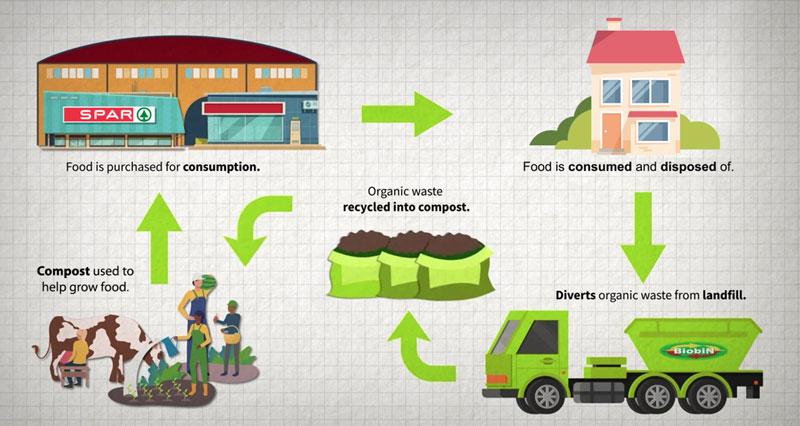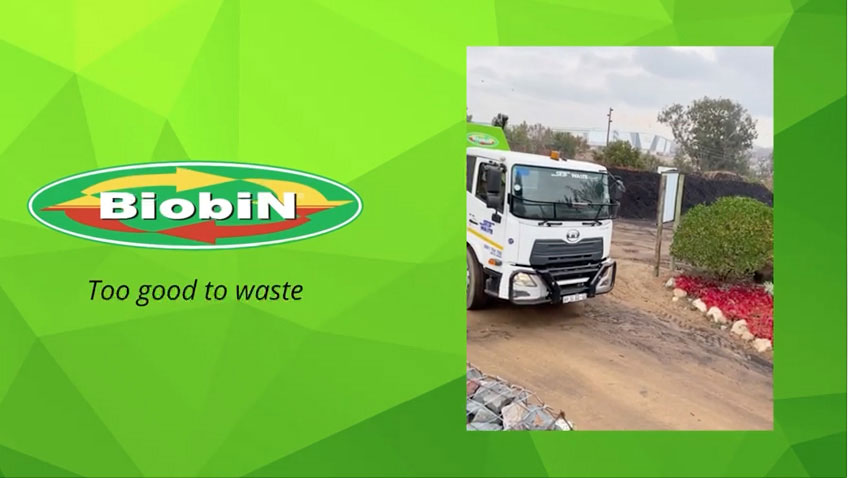So, you’re a good human. You put your plastics in the right recycling bin and general waste in its designated place as well. That’s great, but, have you ever paused and wondered where it goes from there?
There is a popular old proverb that says, “out of sight, out of mind” and it’s pretty accurate in situations such as these, because we seldom think about our waste, beyond its immediate removal. In most cases our trash finds its way to designated landfill sites – sometimes kilometres wide, these areas are nearly overflowing with scraps and waste that is left to decompose.
SA actually has some of the most robust waste management legislation in the world, but that doesn’t mean we have the space or equipment to deal with what is now an increasing problem. In fact, our landfills are close to hitting critical mass, and they pose their own sustainability risks and issues because of that. This makes them less of a solution, and more of a contributing problem at times.
Here are a couple ‘what a waste’ stats* for you to bear in mind
SA produces approx. 31 million tonnes of food per annum.
An extraordinary 10 million tonnes goes to waste per annum.
That is 1/3 of the food produced.
There is a solution however, one that our SPAR KZN Perishables DC has been proud to pilot, prior to us rolling it out throughout the organisation. That solution is called BiobiN. BiobiN is an Australian system that has been developed to turn food and wet waste into compost, in a sustainable way. Since its launch in 2000, it has been patented and used in countries around the world, landing in SA in 2017.
Let’s get specific about BiobiN
What is it?
An onsite capture, containment and processing unit. It initiates the composting process of organic material and reduces odours, bacteria and other pathogens.
How it helps?
It reduces food and organic waste going into landfill sites. This reduces greenhouse gas emissions which helps us (SPAR) reduce our carbon footprint.
How it works?
No chemicals or microbes are needed with the BiobiN. It uses woodchips and/or sawdust and forcefully inducted air to start the composting process. A built in biofilter removes the odours and a condenser removes the moisture. This is a no mess, no fuss and we’re very happy to say, no smell solution.

What goes in?

What comes out?
It takes about 6 weeks to convert the food waste into compost, which is then used on farms, in gardens and on soccer fields and similar areas. This is another sustainability solution that really works and that SPAR is proud to champion.
Going forward, the BiobiN solution will be used by interested SPAR retailers, who are ready to explore better, more cost efficient and effective ways of being sustainable.

For more SPAR sustainability news, watch this space.
*stats as per: WWF The Food Loss and Waste: Facts and Futures.
According to a survey 63% of people don’t know the difference between the ‘use by’ and ‘best before’ dates. FYI. ‘Use BY’ is for perishables that must be consumed by the given date (i.e. it’s a safety date). ‘BEST Before’ is for foods that can be eaten after the given date, but will no longer be at their best (i.e. it’s a quality date).